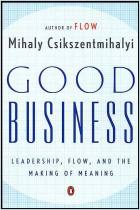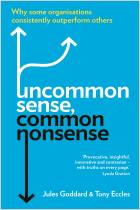Únase a getAbstract para acceder al resumen.

Únase a getAbstract para acceder al resumen.
Dov Seidman
How
Why HOW We Do Anything Means Everything ... in Business (and in Life)
Wiley, 2007
¿De qué se trata?
It used to be that what you did in business counted. Not anymore. Now it is how you do things that matters.
Recommendation
Dov Seidman respects your intelligence. Instead of “10 tips for ethical behavior,” he provides a powerful new lens for seeing and assessing contemporary business ethics. Seidman, an erudite intellectual and practical philosopher, shows that in today’s transparent commercial environment, operating openly and morally is both honorable and economically necessary. Corporate achievement now depends far more on how you act than on what you do. With the proliferation of media outlets, the Internet, notably YouTube, and cable channels, everyone is watching. Seidman uses fascinating anecdotes, case studies and scientific research to prove that goal-driven companies must focus on openness, integrity, values and ethics. Do things right, you win; do them wrong, you lose and end up exposed on the Web. Now that businesses live under the microscope, “on glass...slides, flat as flat can be,” your company will be exposed if it cuts ethical corners. Seidman’s well-annotated book is peppered with learned references to brilliant thinkers from Aristotle to Kierkegaard. He deftly moves from sophisticated topics, such as brain functioning, neuroeconomics and language theory, to stories about pop diva Janet Jackson, Madam Walker’s Wonderful Hair Grower and Krazy George Henderson, madcap inventor of “the wave.” This makes the book a pure delight to read. getAbstract openly enjoyed this insightful, idealistic and practical argument for corporate transparency, collaboration, good conduct and altruism.
Summary
About the Author
Dov Seidman is founder, chairman and CEO of a corporate consulting firm that specializes in business ethics. He is a graduate of Harvard Law School, UCLA and Oxford University.


















Comment on this summary